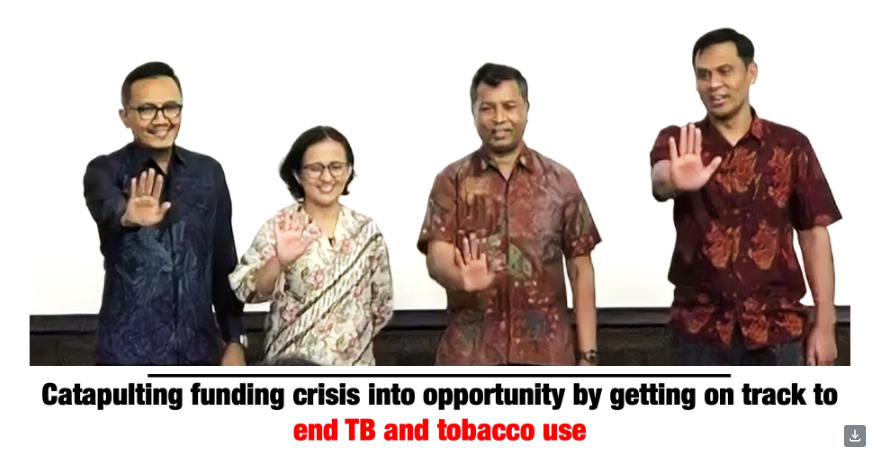Funding Crisis Can Fuel the Fight to End TB and Tobacco, Say Experts
The funding crises faced by low- and middle-income countries, worsened by US government-led funding cuts, can be transformed into opportunities. Experts argue that investing strategically in health initiatives, especially targeting tuberculosis (TB) and tobacco use, is key to building a healthier and more sustainable future.
Tobacco use alone results in an economic loss of US$ 1.4 trillion every year. Dr Tara Singh Bam, Asia Pacific Director for Tobacco Control at Vital Strategies, explains that raising tobacco taxes is a scientifically proven way to reduce tobacco use, deter new smokers, encourage quitting, and generate new public health revenues. Higher taxes on tobacco, alcohol, sugary drinks, and junk food could further strengthen domestic health funding and reduce non-communicable disease burdens.
Investing in TB control also makes strong economic sense. A 2023 study found that for every US$ 1 invested in TB control, there is a return of US$ 46. Strengthening domestic TB programs with the best screening, diagnostics, treatment, and prevention strategies could prevent suffering, save lives, and boost economies.
The connection between tobacco use and TB is alarming. As highlighted in a public health lecture at Udayana University, Indonesia, chaired by Dr Ketut Suarjana and featuring Dr Tara Singh Bam, tobacco is the biggest risk factor for TB in Indonesia.
“Tobacco use is the biggest risk factor for TB, as per the latest WHO Global TB Report 2024,” said Dr Putu Ayu Swandewi Astuti, Coordinator of the Undergraduate Public Health Study Programme at Udayana University. “Tobacco use was the risk factor for almost 150,000 TB patients in Indonesia in 2023 — about one-fifth of all TB cases. Undernutrition ranked second, with 84,000 cases, followed by diabetes, HIV, and alcohol use.”
Globally, TB affected 10.8 million people in 2023, causing 1.25 million deaths. Tobacco remains a bigger killer, with 8 million deaths annually, and contributes directly to TB burden: over 730,000 people developed TB linked to tobacco use.
Tobacco worsens TB outcomes by increasing delays in diagnosis and treatment. Research from Nepal revealed that smokers faced much longer delays (up to 133 days) compared to non-smokers (80 days) in beginning TB treatment, adding to catastrophic costs and health complications.
Moreover, TB patients who quit smoking during treatment have better health outcomes. A study published in Thorax (2022) found that 91% of patients who quit tobacco during TB treatment completed therapy successfully, compared to only 80% of those who continued smoking.
Public health experts are urging both individual and collective responsibility. Dr Bam stressed that quitting tobacco, seeking timely healthcare, and protecting others from infection are duties every individual must uphold. Governments must also be held accountable for delivering on health promises, including ending TB and tobacco epidemics in line with Sustainable Development Goals (SDGs).
Faced with funding challenges, governments have a critical opportunity to invest wisely: fully fund domestic health responses, strengthen tobacco control, and prioritize TB elimination. Following scientific evidence can create healthier societies, economic resilience, and a safer tomorrow.



